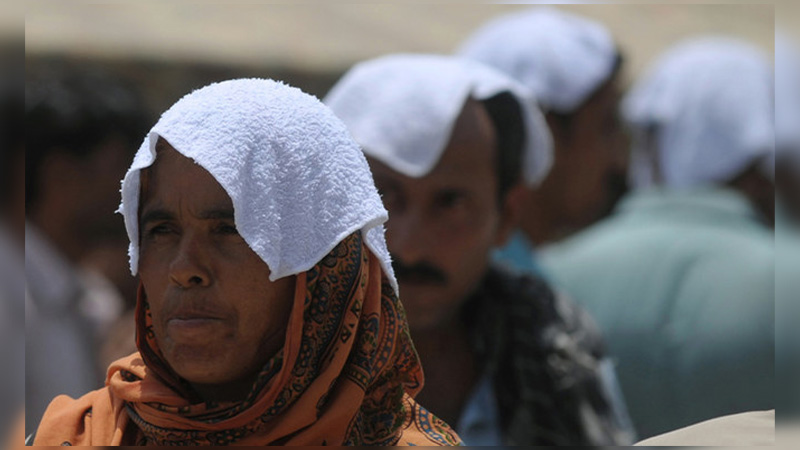Karachi has been sweltering under intense heat for eight consecutive days, driven by a low atmospheric pressure area southeast of the city. Chief Meteorologist Dr. Sardar Sarfaraz highlighted that these conditions are the hottest since the 2015 heatwave, which saw temperatures soar to 44.8°C.
Heatwave intensity and impact
“We are experiencing weather conditions similar to those of nine years ago, with deviations from the monthly average temperature staying around or above four degrees Celsius during this heatwave,” Dr. Sarfaraz explained to Dawn. The highest temperature recorded this year has been 42°C.
Humidity and heat index
Dr. Sarfaraz emphasised the compounded effect of high humidity in Karachi, which exacerbates the already oppressive heat. “Humidity levels have remained at or above 50 per cent this week, significantly increasing the feels-like temperature,” he noted. The minimum temperature for June has also remained high, averaging 29-30°C.
The highest June temperature in Karachi’s history was 47°C, recorded on June 18, 1979. May’s record high was 48°C, set on May 9, 1938.
Climate change and weather patterns
Dr. Sarfaraz linked the persistent heatwaves to global climate change, noting that studies predict more frequent, prolonged, and severe weather events as global temperatures rise. He referenced a study by World Weather Attribution, which connected the devastating 2022 floods in Pakistan to climate change.
Rising temperatures and humidity trends
Dr. Aamir Alamgir, a senior teacher and researcher at Karachi University’s Institute of Environmental Studies, reported a significant increase in Karachi’s mean temperature over the past 59 years, with a rise of 2.25°C. “This represents an increase of 0.38°C per decade, which is tenfold the global temperature rise,” he explained. Karachi’s humidity varies from 58pc in December to 85pc in August. During the 2015 heatwave, the heat index reached a staggering 66°C.
Socioeconomic implications
Dr. Alamgir also highlighted the dire consequences for Karachi’s lower socioeconomic strata, exacerbated by damaged water supply networks, frequent power outages, and blackouts. “Several lives were lost during the 2015 heatwave, and unfortunately, this year has seen fatalities as well,” he said.
Recent heatwave casualties
On Sunday, officials reported that three individuals succumbed to heatstroke at Abbasi Shaheed Hospital and Jinnah Postgraduate Medical Centre. The Meteorological Department’s data showed 63pc humidity at 10:00 AM, with a temperature of 35°C, resulting in a heat index of 47°C. By 5:00 PM, the heat index had climbed to 55°C as the temperature rose to 39.2°C with 54pc relative humidity.
Outlook
Dr. Sarfaraz mentioned that the low-pressure area has weakened over the past two days and is expected to lose its influence over Karachi by Monday morning, likely bringing relief from the heatwave conditions. The maximum temperature recorded in the city on Saturday was 38°C.
